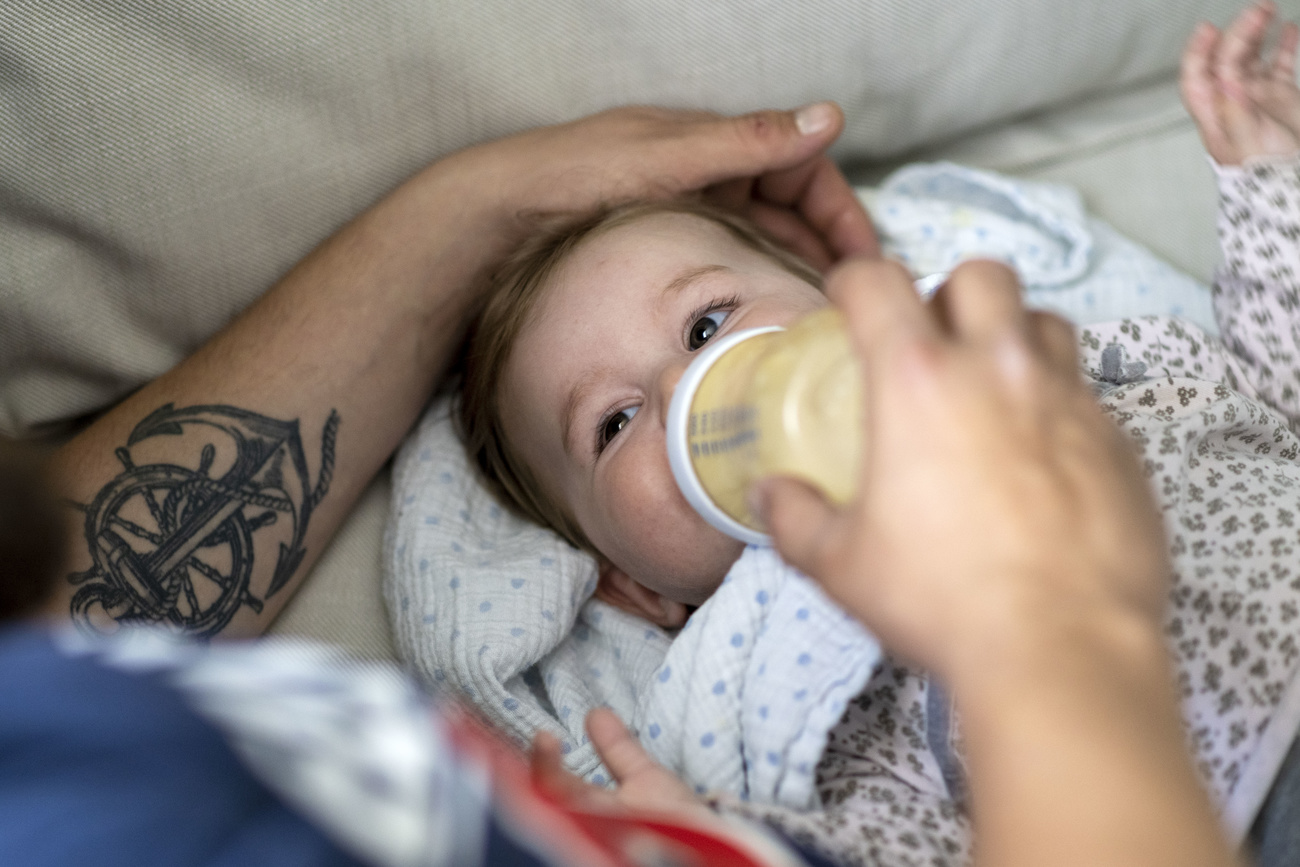
Survey shows surprising number of surrogate babies

An increasing number of families in Switzerland are turning to foreign surrogate mothers in order to have a baby.
According to a report in the newspaper NZZ am Sonntag, the Swiss ban on surrogate motherhood is circumvented via foreign countries more often than previously thought.
The newspaper refers to a survey of the cantonal civil status authorities. According to the survey, 48 children of surrogate mothers were registered last year alone – twice as many as in 2016. Over the past four years, there were 144 children registered nationwide. Most of them were born in the United States, followed by Ukraine and Canada.
These figures are higher than the federal government’s previous estimates, but they only represent the tip of the iceberg, suggests the report – which describes a package deal in Ukraine that includes a prosthetic pregnancy belly for the “expecting” mother to wear in Switzerland. Experts suspect that the practice is much more widespread, and that as many as 1,000 surrogate-born children are already living in this country.

More
A child is not a commodity, says top Swiss court

In compliance with the JTI standards
More: SWI swissinfo.ch certified by the Journalism Trust Initiative

























You can find an overview of ongoing debates with our journalists here . Please join us!
If you want to start a conversation about a topic raised in this article or want to report factual errors, email us at english@swissinfo.ch.